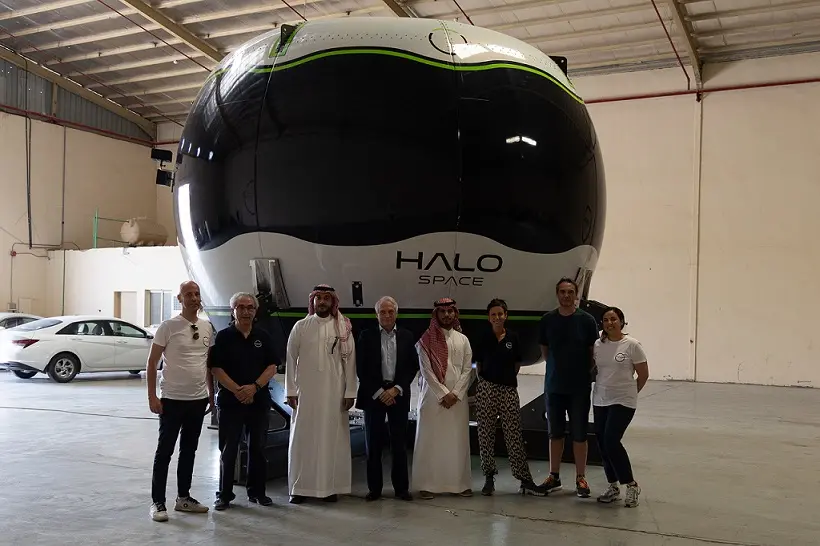Saudi Arabia will host the next test flight for Halo Space, a global space tourism company. This is in a move to advance space tourism.
This test is scheduled for September and is part of Halo Space’s broader strategy to launch manned space flights by 2025. The commercial flights are expected to follow in 2026.
Halo Space’s test flight will feature the Aurora, a full-size prototype capsule designed to ascend 30 kilometers above Earth.
The mission’s primary goal is to test and validate critical systems developed over the last three years. This will be Halo Space’s sixth test flight, a milestone in the company’s journey toward making space tourism a reality.
Saudi Vision 2030: Aiding Space Exploration
The collaboration between Halo Space and Saudi Arabia’s Communications, Space and Technology Commission (CST) reflects the Kingdom’s growing commitment to space exploration.
This partnership aligns with Saudi Vision 2030, which aims to transform the Kingdom into a global hub for technological innovation and economic diversification.
Alberto Castrillo, Chief Technology Officer at Halo Space, emphasized the mission’s importance, stating, “We designed this test to thoroughly validate our critical systems. We carefully chose the dates and location to ensure reliable operation and safe conditions.”
Since the start of the year, CST has actively supported Halo Space in preparing for the test flight. The CST, alongside the General Authority of Civil Aviation (GACA), is working to meet all regulatory requirements.
These efforts ensure the safety of personnel and materials involved in this groundbreaking test. The decision by Halo Space to establish its operational base and final assembly site in Saudi Arabia highlights the Kingdom’s favorable conditions for space exploration.
Frank Salzgeber, Acting Deputy Governor for Space Sector at CST, highlighted CST’s dual role in the space sector. “In addition to its regulatory role, CST is fostering innovative business models and supporting space exploration activities. This project represents a significant step forward in space tourism,” Salzgeber remarked.
Also Read: Namibia to Host Major Nuclear Science and Technology Conference
Aiming for the Future: 2025 and Beyond
Carlos Mira, CEO of Halo Space, underscored the importance of safety in their mission. “Collaborating closely with private and public institutions to adopt safety standards and certification procedures is key to our mission,” Mira said. He also noted that CST’s involvement is crucial for ensuring the safest possible near-space flight experience.
Halo Space, incubated by Arthur D. Little (ADL) through its Breakthrough Incubator program, continues to receive strategic guidance from ADL.
Thomas Kuruvilla, Managing Partner at ADL Middle East and a board member of Halo Space, commented on the collaboration.
“Our partnership with Halo Space reflects our commitment to supporting projects that push the boundaries of technology and exploration. This initiative showcases Saudi Arabia’s leadership in technological innovation,” Kuruvilla stated.
Halo Space’s manned flights, set to begin in 2025, will offer passengers a unique opportunity. They will rise to an altitude of up to 35 kilometers in a balloon-lifted spacecraft.
The journey will span up to 200 kilometers horizontally and last over six hours. This will allow passengers to witness the Earth’s curvature and the vastness of space.
By 2030, Halo Space aims to make space tourism accessible to a broader audience. The company plans to serve 10,000 passengers from the start of its commercial operations until the decade’s end.

